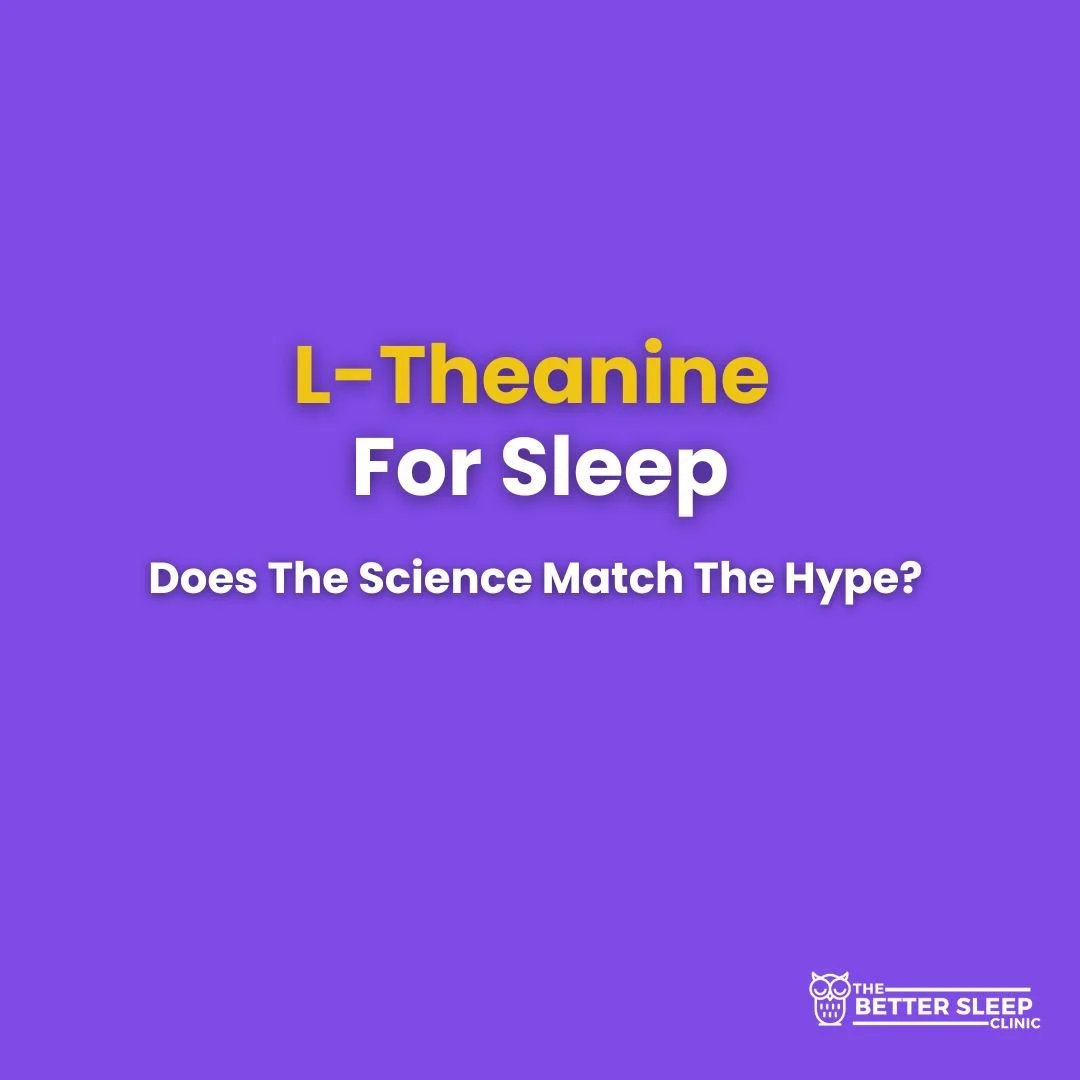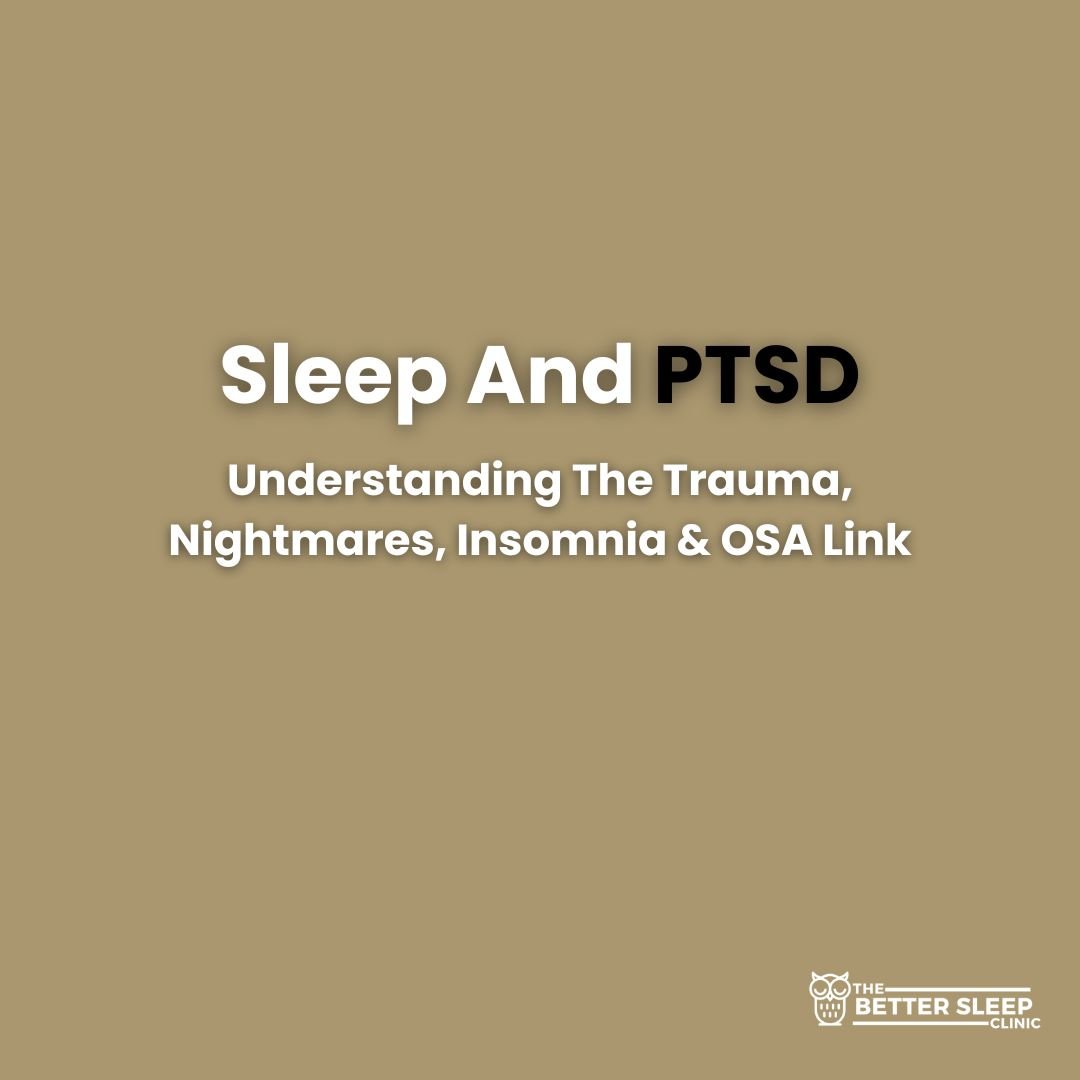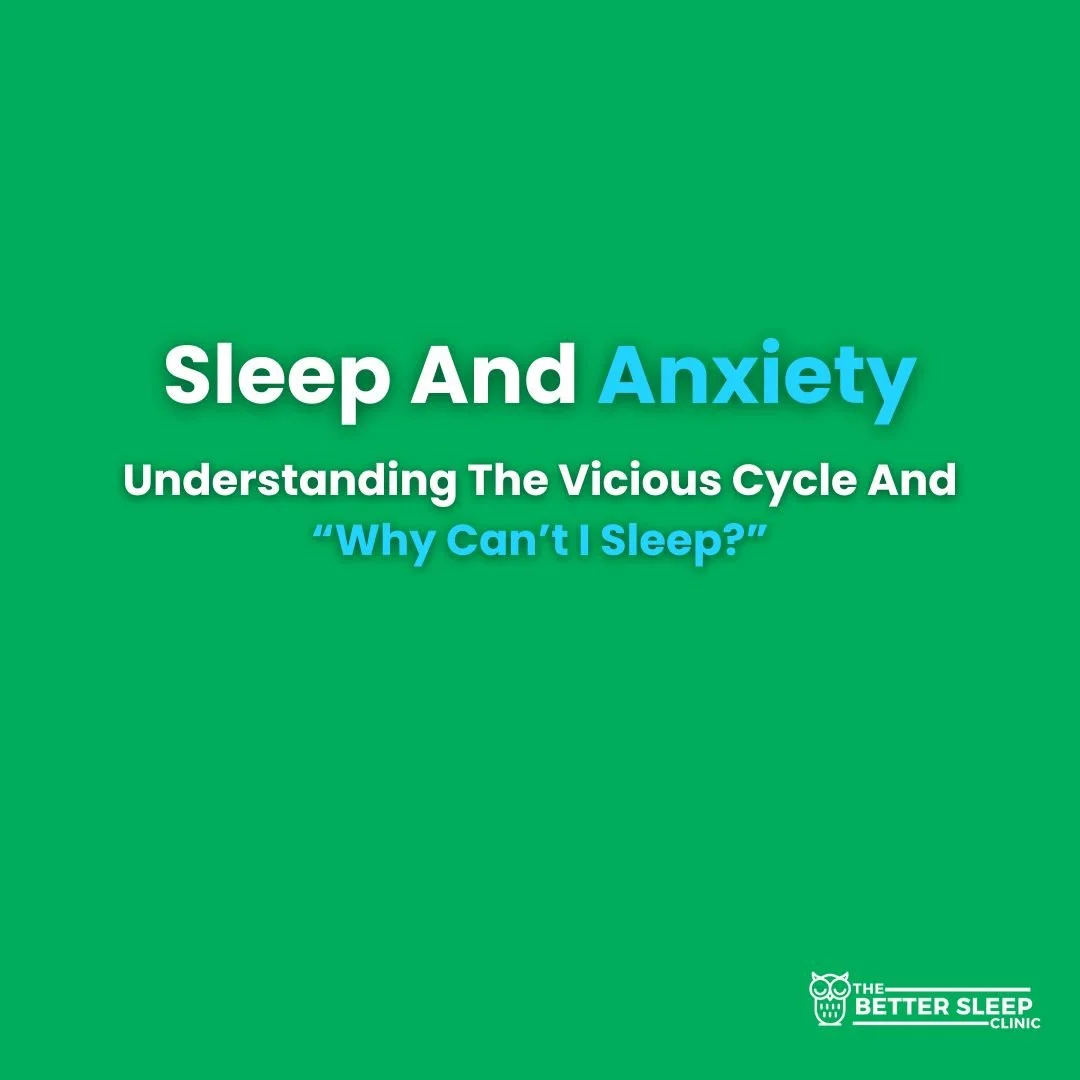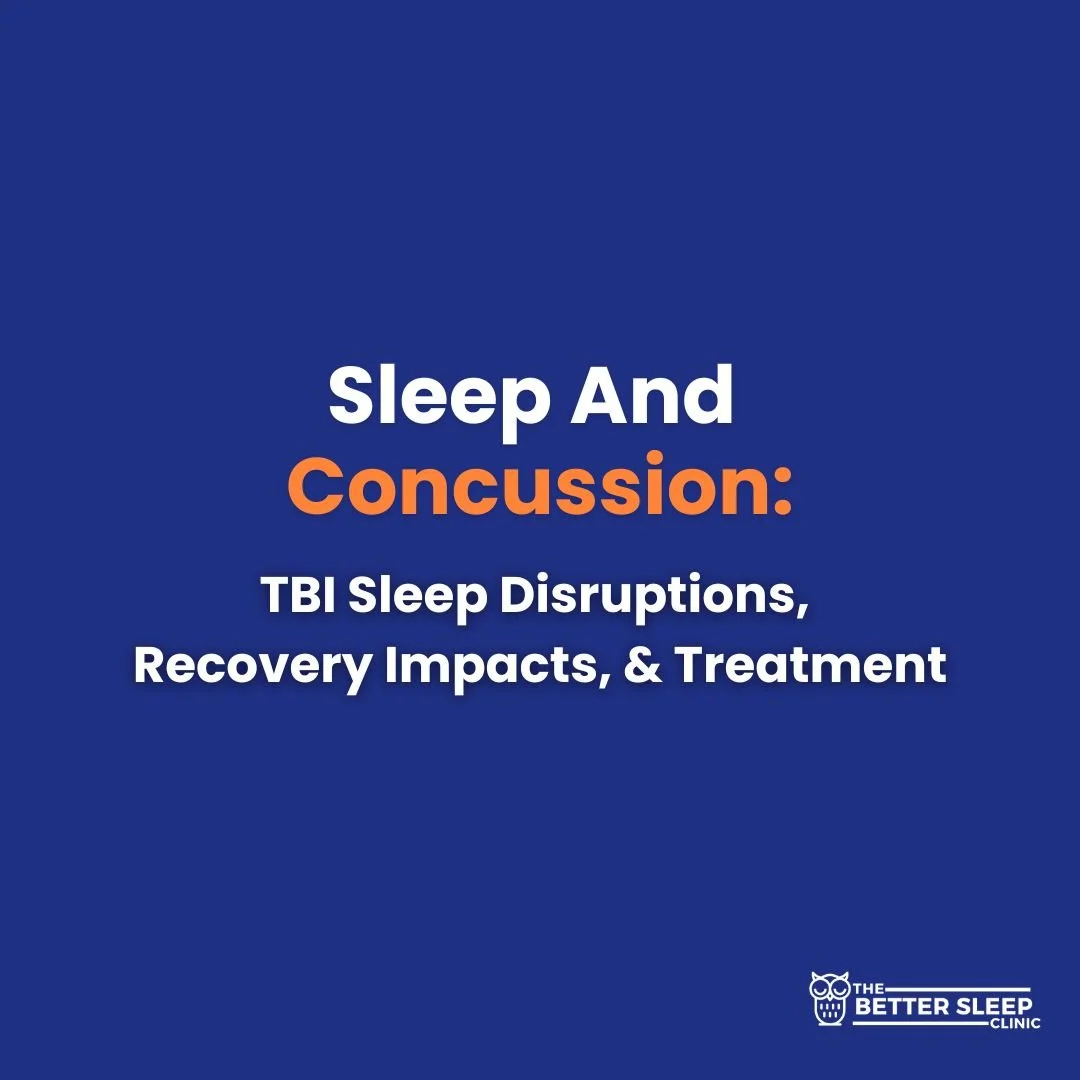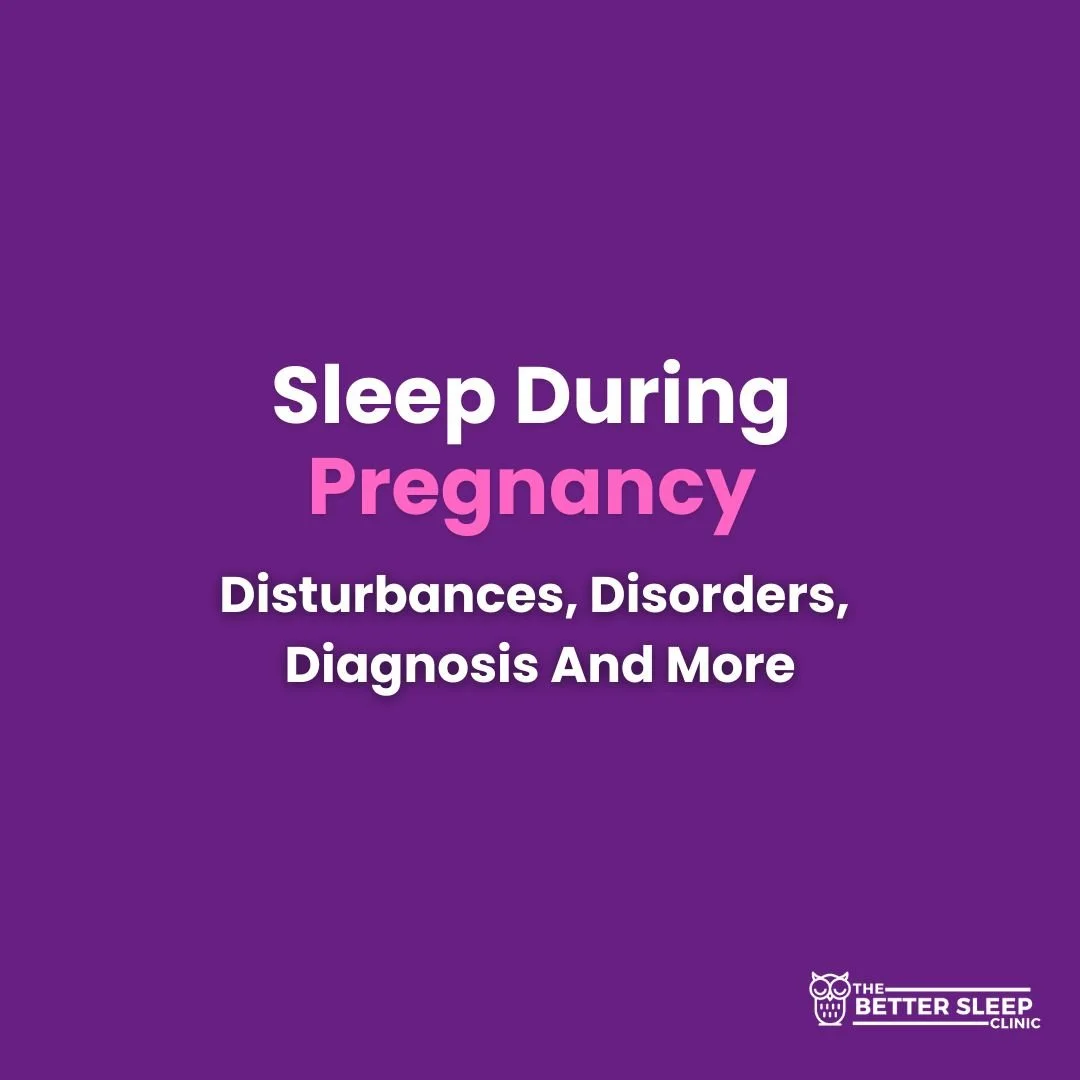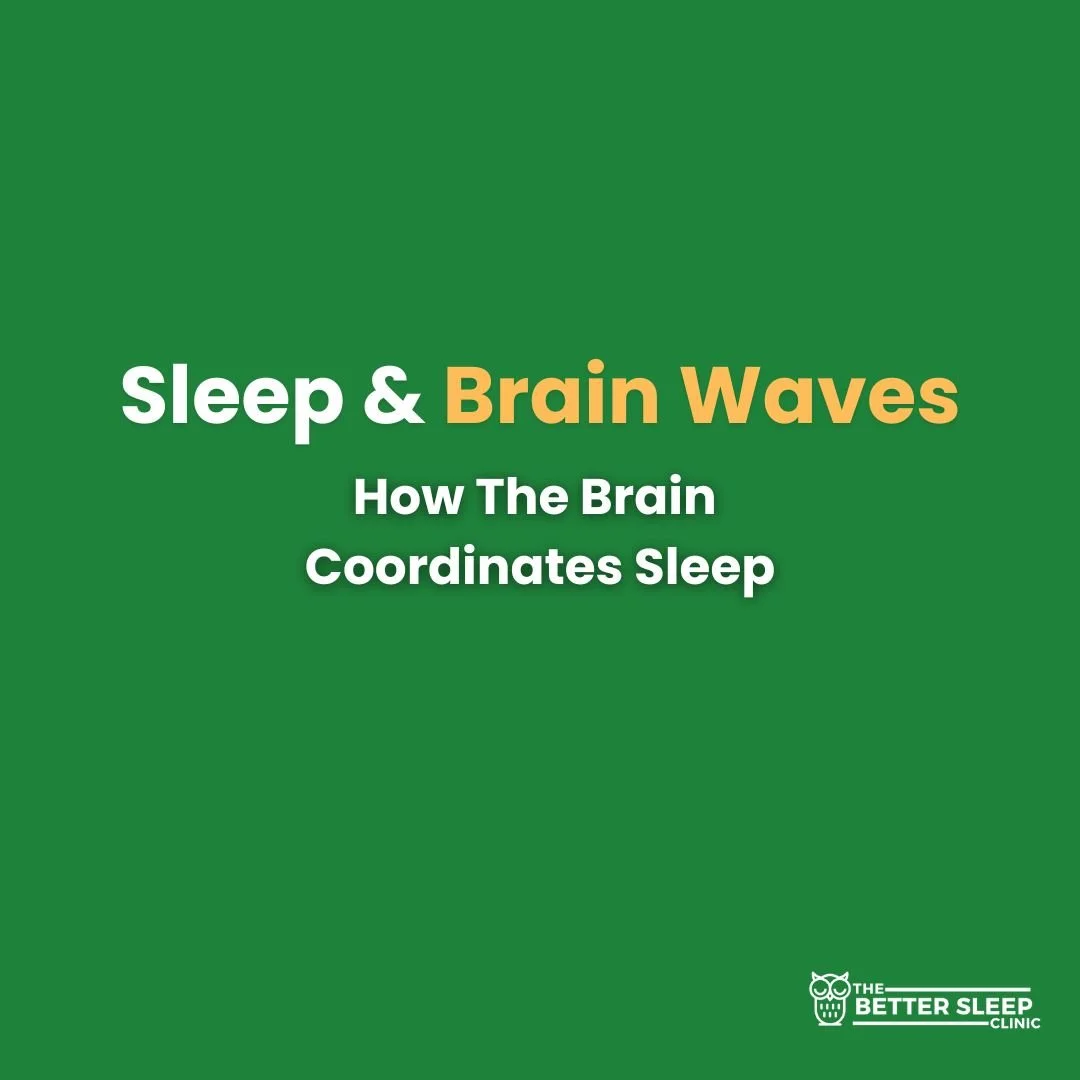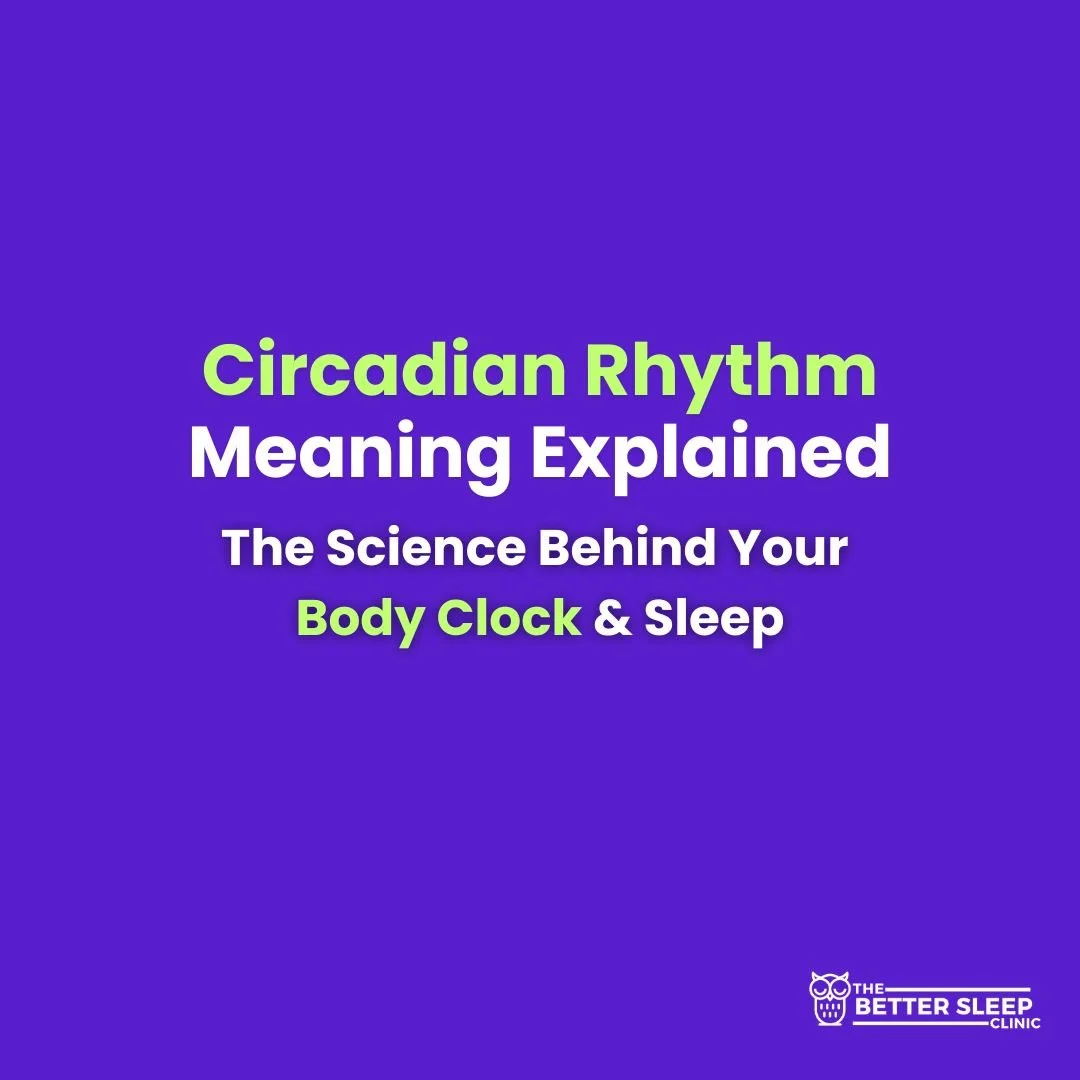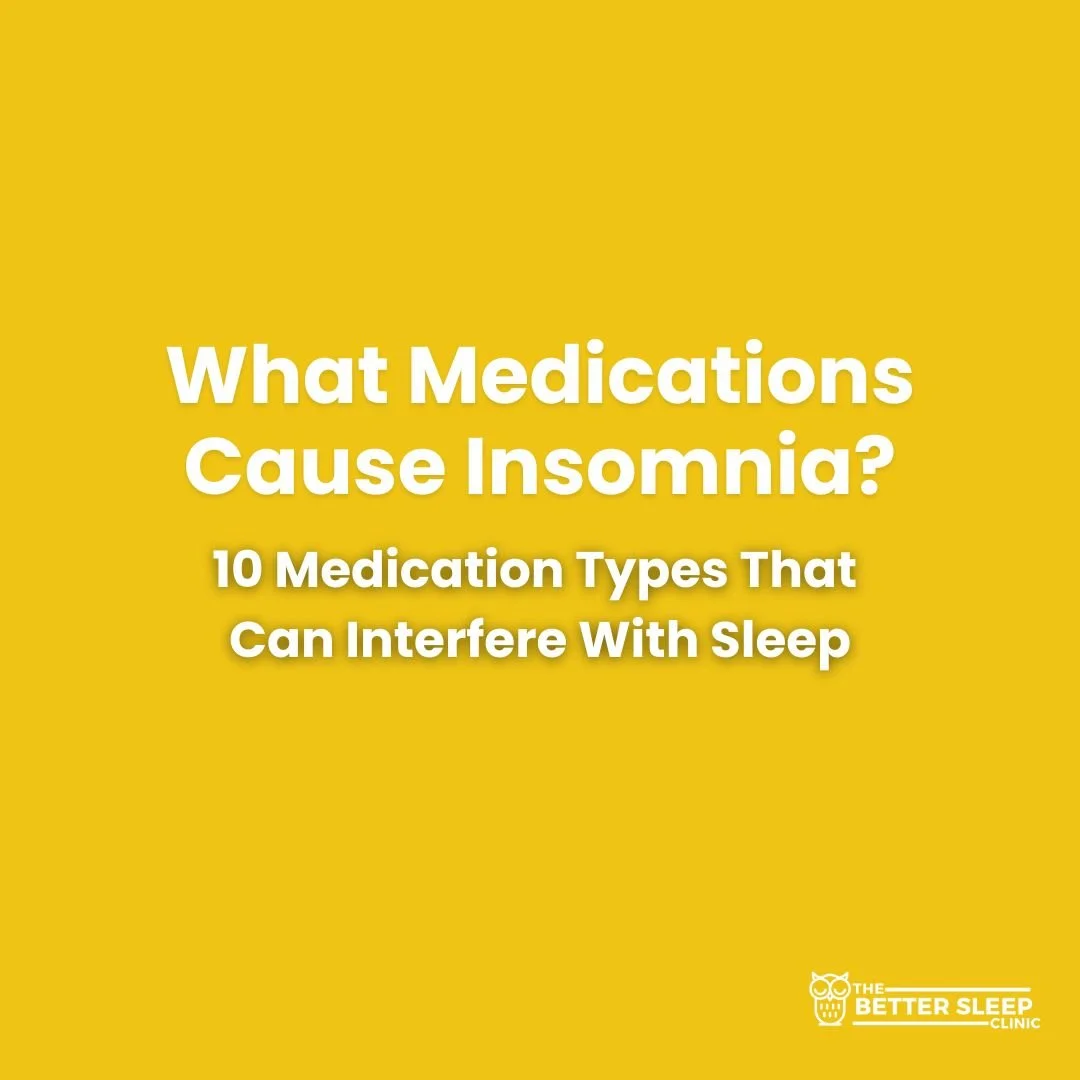L-Theanine For Sleep: Does The Science Match The Hype?
Quick Summary
Promotes Calm, Not Sleepiness: L-theanine, an amino acid found in tea, appears to work by increasing alpha brain waves. This creates a state of relaxed alertness or "calm attention," rather than acting as a direct sedative.
May Improve Sleep Indirectly Through Anxiety Reduction: For some individuals, L-theanine may improve sleep quality by easing anxiety. However, studies show it does not typically reduce the time it takes to fall asleep.
Synergy with Caffeine: When combined with caffeine, L-theanine may sharpen focus, improve attention, and increase accuracy on cognitive tasks more effectively than caffeine alone, while also reducing some of caffeine's negative side effects like headaches.
Evidence is Still Developing: While L-theanine has an excellent safety profile, many of its purported health benefits are not yet supported by large, high-quality human clinical trials. The current scientific evidence is promising but remains preliminary.
L-Theanine And Sleep
You’ve likely seen L-theanine listed as a key ingredient in supplements promising better sleep, reduced stress, and sharper focus. Derived from the same tea leaves that have been brewed for millennia, this amino acid has become a popular modern tool for managing the pressures of daily life.
But with its surge in popularity, an important question arises: does the scientific evidence truly support the marketing claims?
This article examines the research behind L-theanine to separate the established facts from the ongoing hype. We will look at how it works in the brain, what the studies say about its effects on relaxation and sleep, and whether it’s a safe addition to your sleep and wellbeing routine.
What Exactly Is L-Theanine?
L-theanine is a unique amino acid found almost exclusively in the leaves of the tea plant, Camellia sinensis, and one type of mushroom (Dashwood & Visioli, 2025).
Unlike the amino acids that build proteins in our body, L-theanine is considered a non-protein amino acid. Its primary role is in influencing brain function. Structurally, it is very similar to glutamate, an important neurotransmitter—a chemical messenger in the brain—that plays a key role in excitement and brain activity. This similarity is central to how L-theanine works.
Does L-Theanine Affect the Brain?
L-theanine is well-absorbed by the body and has the notable ability to cross the blood-brain barrier, a protective filter that separates the bloodstream from the brain (Dashwood & Visioli, 2025). Once in the brain, it can begin to influence brain activity. Animal studies show that after oral intake, L-theanine levels in the brain rise within an hour and can remain elevated for up to five hours (Terashima et al., 1999).
How Exactly Does L-Theanine Affect the Brain?
L-theanine’s main mechanism of action appears to be its interaction with the brain's glutamate system. Because of its structural similarity to glutamate, L-theanine can bind to glutamate receptors. However, it does so with a much lower affinity, meaning it doesn't cause the same level of excitement that glutamate does (Kakuda et al., 2002). This interaction may help to calm excessive brain activity, contributing to a feeling of calm.
Does L-Theanine Affect Brain Waves?
Perhaps the most frequently cited effect of L-theanine is its ability to increase the production of alpha brain waves (Dashwood & Visioli, 2025). Alpha waves, a type of electrical activity in the brain measured by an electroencephalogram (EEG), are most prominent when you are in a state of relaxed, wakeful rest—like during meditation or right before you fall asleep. This increase in alpha waves is thought to be the primary reason L-theanine can induce a state of "calm attention" without causing drowsiness.
But does this change in brain waves translate to a real, noticeable feeling of relaxation?
Can L-Theanine Actually Help You Relax?
Some human studies suggest that L-theanine can indeed promote relaxation, though the effect may depend on a person's baseline anxiety level. The increase in alpha brain waves is the most consistent finding, which provides an objective measure of a shift toward a more relaxed mental state (Nobre et al., 2008). This effect has been observed within 30 to 60 minutes after taking typical supplement doses, ranging from 50 to 250 mg.
However, the research is not entirely consistent. Some studies have found that the relaxing benefits of L-theanine are most noticeable in individuals who report higher-than-average anxiety to begin with (Higashiyama et al., 2011).
In one study, participants with high baseline anxiety noticed a benefit, while those who were not anxious did not experience a significant change compared to a placebo (Higashiyama et al., 2011).
Another investigation comparing 200 mg of L-theanine to 1 mg of alprazolam (a common anti-anxiety medication) found that while L-theanine did promote relaxation, neither substance significantly reduced symptoms in a model of anticipatory anxiety (Lu et al., 2004).
This suggests that L-theanine isn't a powerful anti-anxiety agent in the way a prescription medication is. Instead, it seems to gently guide the brain into a calmer, more focused state. This unique effect—promoting relaxation while simultaneously supporting attention—is why it's often described as inducing "calm alertness."
Given its calming properties, it seems logical that L-theanine would be a good sleep aid. But what does the research say about its direct impact on sleep?
Can L-Theanine Improve Your Sleep?
L-theanine may improve your sleep quality, but it does so primarily by reducing pre-sleep anxiety rather than by acting as a direct sedative. Unlike traditional prescription sleeping pills that induce drowsiness, L-theanine does not appear to have hypnotic effects at standard doses (Rao et al., 2015). This means it is unlikely to make you feel sleepy or reduce the amount of time it takes you to fall asleep, a measure known as sleep latency.
The most compelling evidence for L-theanine's role in sleep comes from a study involving boys aged 8-12 with Attention Deficit/Hyperactivity Disorder (ADHD), a condition often associated with sleep disturbances (Lyon et al., 2011). In this high-quality study (known as a randomized, double-blind, placebo-controlled trial), the boys were given 200 mg of L-theanine twice daily for six weeks. The results showed that the L-theanine group had significantly better sleep quality. They experienced fewer nighttime awakenings and less movement during sleep, leading to more efficient, restorative rest.
Importantly, the study confirmed that L-theanine did not affect the time it took for the boys to fall asleep (Lyon et al., 2011).
This supports the idea that L-theanine's main benefit for sleep is its anxiolytic, or anxiety-reducing, effect. By calming the mind and easing racing thoughts, it can help create a mental state that is more helpful for falling asleep and staying asleep peacefully. It helps with the quality of sleep, not necessarily the initiation of it.
While L-theanine on its own is known for calm, it's often found in nature alongside a stimulant: caffeine. What happens when these two compounds are taken together?
What Happens When You Combine L-Theanine with Caffeine?
Combining L-theanine with caffeine may improve cognitive performance and subjective feelings of alertness more than taking either substance alone.
This powerful pairing is why many people report that drinking tea provides a smoother, more stable energy boost than coffee, which can sometimes lead to jitteriness. The L-theanine in tea appears to temper the harsh edges of caffeine.
Research has explored this combination in controlled settings. One study found that taking 100 mg of L-theanine with 50 mg of caffeine helped participants perform better on tasks requiring accuracy and attention compared to those who took caffeine alone (Owen et al., 2008).
Another study used a higher dose (250 mg of L-theanine and 150 mg of caffeine) and found that the combination preserved caffeine's benefits on fatigue and reaction time while also improving alertness and, notably, reducing the incidence of headaches that were reported in the caffeine-only group (Haskell et al., 2008).
The combination also seems to improve the ability to switch between tasks and pay attention, even with distracting stimuli present (Owen et al., 2008). L-theanine may also counteract the vasoconstrictive effects of caffeine, the narrowing of blood vessels, which could be another reason it helps reduce caffeine-induced headaches (Dodd et al., 2015). This pairing offers a way to get the focus-enhancing benefits of caffeine while potentially lessening some of its less desirable side effects.
If this combination is so effective in tea, can you get enough L-theanine just by drinking tea?
Can I Just Get L-Theanine From A Cup Of Tea?
While L-theanine is a natural component of all types of tea (including green, black, and oolong), the amount of L-theanine in a cup of tea is highly variable and can be difficult to standardize, making it an inconsistent source if you're seeking a specific therapeutic dose. The concentration depends on the type of tea, the age of the leaves at harvest, the specific cultivar of the plant, and the brewing method (Dashwood & Visioli, 2025). Younger leaves, often used for higher-quality teas, typically contain more L-theanine.
How Much L-Theanine Is in a Cup of Tea?
Studies analyzing commercial teas have found a wide range of L-theanine content. For instance, one analysis reported that a standard 200 ml cup of black tea contained the most L-theanine on average (about 24 mg), while green tea contained the least (about 8 mg) (Keenan et al., 2011). This finding contradicts the popular belief that green tea is the superior source. Other studies have reported different findings, highlighting the lack of consistency.
Because the dose used in most clinical studies (typically 100-250 mg) is significantly higher than what you'd find in a single cup of tea, relying on brewed tea for a specific effect is unreliable. This inconsistency is a primary reason why many people turn to supplements, which provide a precise and dependable amount of L-theanine.
With supplements offering higher doses, it's important to ask a final question.
Is Taking an L-Theanine Supplement Safe?
Yes, based on available data, L-theanine is considered to be very safe with a low risk of side effects. Tea has been consumed for thousands of years without any widespread adverse effects, and modern toxicology studies on concentrated L-theanine supplements confirm its safety (Dashwood & Visioli, 2025).
Rigorous safety evaluations in animal models have established a very high safety threshold. For example, a 13-week safety study in rats found no negative health effects even at the highest dose tested, which was an extremely large amount (the equivalent of 4,000 mg per kilogram of body weight daily) (Borzelleca et al., 2006). This is an exceptionally high amount, far exceeding any typical human supplemental dose. Furthermore, L-theanine has shown no evidence of genotoxic activity, meaning it does not damage genetic material, which suggests a lack of carcinogenic potential (Rao et al., 2015).
Should You Take L-Theanine for Better Sleep and Relaxation?
While L-theanine shows clear promise for promoting a state of calm, focused relaxation, the scientific evidence for many of its health claims remains preliminary. The idea that it can directly improve sleep is a slight misinterpretation of the evidence; its real strength lies in its ability to reduce the anxiety that so often interferes with good quality sleep (Dashwood & Visioli, 2025).
For individuals struggling with racing thoughts or a feeling of being "wired" at night, not an uncommon experience in insomnia, L-theanine could be a helpful tool to quiet the mind and prepare the body for rest. Its excellent safety profile makes it a low-risk option for many people. However, it's important to have realistic expectations. It is not a sedative and is unlikely to help those with a diagnosable sleep disorder such as insomnia, delayed sleep phase disorder, or shift work disorder (but there are recommended treatments for sleep disorders, such as CBT for insomnia).
If you are concerned about your sleep, always talk to your medical practitioner as a first step.
You can also talk to a NZ sleep clinic like The Better Sleep Clinic for sleep help. Whether it’s an Auckland sleep clinic, Wellington sleep clinic, Christchurch sleep clinic, Hamilton sleep clinic or anywhere in NZ, we can help.
Ask for a free chat below or book an assessment (no referral required) and get started addressing your sleep problems today.
Frequently Asked Questions About L-Theanine & Sleep
Q1: What is L-theanine?
A1: L-theanine is a unique amino acid found almost exclusively in the leaves of the tea plant (Camellia sinensis) that is known for its ability to promote a state of calm, focused relaxation (Dashwood & Visioli, 2025). Unlike other amino acids, it is not used to build proteins in the body; instead, it can cross the blood-brain barrier to influence brain activity directly.
Q2: Will L-theanine make me feel sleepy?
A2: No, L-theanine does not typically cause drowsiness or act as a sedative. Its primary effect is to increase alpha brain waves, which are associated with a state of "calm alertness" or wakeful relaxation, similar to the state of mind achieved during meditation (Dashwood & Visioli, 2025). Studies have confirmed that even at doses used to promote relaxation, it does not have hypnotic side effects (Rao et al., 2015).
Q3: Can L-theanine help with sleep?
A3: If L-theanine helps improve sleep quality it does so by reducing anxiety, not by inducing sleep. By calming racing thoughts and promoting a relaxed mental state, it can help create the right conditions for falling asleep more easily and staying asleep with fewer interruptions (Lyon et al., 2011). One study showed it improved sleep efficiency and reduced nighttime movements in boys with ADHD, but it did not decrease the time it took them to fall asleep (Lyon et al., 2011).
Q4: How long does it take for L-theanine to work?
A4: The calming effects of L-theanine can typically be felt within 30 to 60 minutes of taking it. Research measuring brain waves has shown a significant increase in alpha wave activity within this timeframe after participants took standard supplement doses of 50-250 mg (Nobre et al., 2008).
Q5: Is it safe to take L-theanine every day?
A5: Yes, L-theanine is considered very safe for daily use and has an extremely low risk of side effects. Extensive safety studies have established a very high safety threshold, with one report finding no adverse effects in rats even at the highest dose tested—an amount far greater than any typical human dose (Borzelleca et al., 2006).
Q6: Can I get a therapeutic dose of L-theanine from drinking tea?
A6: It is difficult to get a consistent therapeutic dose of L-theanine from drinking tea alone. The amount of L-theanine in tea varies widely depending on the tea type, brewing method, and age of the leaves (Dashwood & Visioli, 2025). A typical cup of tea may contain anywhere from 8 to 24 mg, whereas clinical studies showing benefits often use doses between 100 and 250 mg (Keenan et al., 2011).
References
Borzelleca, J. F., Peters, D., & Hall, W. A. (2006). A 13-week dietary toxicity and toxicokinetic study with L-theanine in rats. Food and Chemical Toxicology, 44(7), 1158–1166.
Dashwood, R., & Visioli, F. (2025). L-theanine: From tea leaf to trending supplement – does the science match the hype for brain health and relaxation? Nutrition Research, 134, 39–48.
Dodd, F. L., Kennedy, D. O., Riby, L. M., & Haskell-Ramsay, C. F. (2015). A double-blind, placebo-controlled study evaluating the effects of caffeine and L-theanine both alone and in combination on cerebral blood flow, cognition and mood. Psychopharmacology, 232(14), 2563–2576.
Haskell, C. F., Kennedy, D. O., Milne, A. L., Wesnes, K. A., & Scholey, A. B. (2008). The effects of L-theanine, caffeine and their combination on cognition and mood. Biological Psychology, 77(2), 113–122.
Higashiyama, A., Htay, H. H., Ozeki, M., Juneja, L. R., & Kapoor, M. P. (2011). Effects of L-theanine on attention and reaction time response. Journal of Functional Foods, 3(3), 171–178.
Kakuda, T., Nozawa, A., Sugimoto, A., & Niino, H. (2002). Inhibition by theanine of binding of [3H]AMPA, [3H]kainate, and [3H]MDL 105,519 to glutamate receptors. Bioscience, Biotechnology, and Biochemistry, 66(12), 2683–2686.
Keenan, E. K., Finnie, M. D. A., Jones, P. S., Rogers, P. J., & Priestley, C. M. (2011). How much theanine in a cup of tea? Effects of tea type and method of preparation. Food Chemistry, 125(2), 588–594.
Lu, K., Gray, M. A., Oliver, C., Liley, D. T., Harrison, B. J., Bartholomeusz, C. F., Phan, K. L., & Nathan, P. J. (2004). The acute effects of L-theanine in comparison with alprazolam on anticipatory anxiety in humans. Human Psychopharmacology: Clinical and Experimental, 19(7), 457–465.
Lyon, M. R., Kapoor, M. P., & Juneja, L. R. (2011). The effects of L-theanine (Suntheanine®) on objective sleep quality in boys with attention deficit hyperactivity disorder (ADHD): a randomized, double-blind, placebo-controlled clinical trial. Alternative Medicine Review, 16(4), 348–354.
Nobre, A. C., Rao, A., & Owen, G. N. (2008). L-theanine, a natural constituent in tea, and its effect on mental state. Asia Pacific Journal of Clinical Nutrition, 17(S1), 167–168.
Owen, G. N., Parnell, H., De Bruin, E. A., & Rycroft, J. A. (2008). The combined effects of L-theanine and caffeine on cognitive performance and mood. Nutritional Neuroscience, 11(4), 193–198.
Rao, T. P., Ozeki, M., & Juneja, L. R. (2015). In search of a safe natural sleep aid. Journal of the American College of Nutrition, 34(5), 436–447.
Terashima, T., Takido, J., & Yokogoshi, H. (1999). Time-dependent changes of amino acids in the serum, liver, brain and urine of rats administered with theanine. Bioscience, Biotechnology, and Biochemistry, 63(4), 615–618.
Written By The Better Sleep Clinic
Reviewed By Dan Ford, Sleep Psychologist


